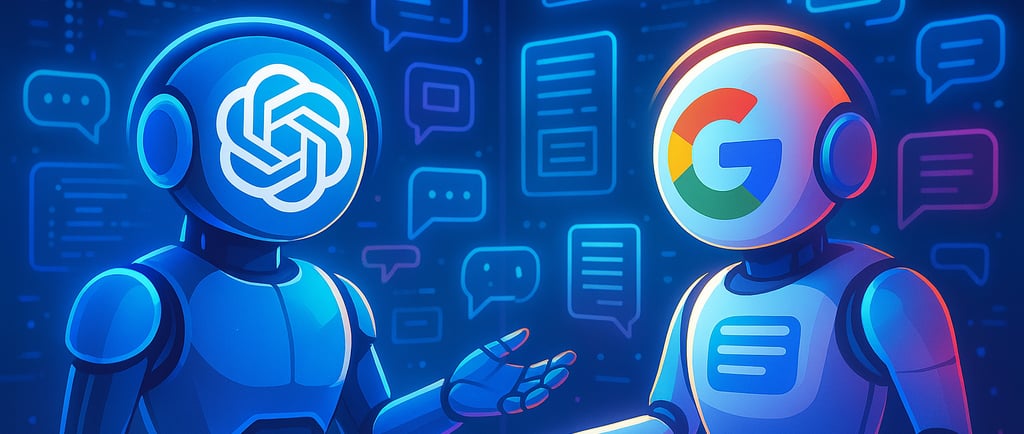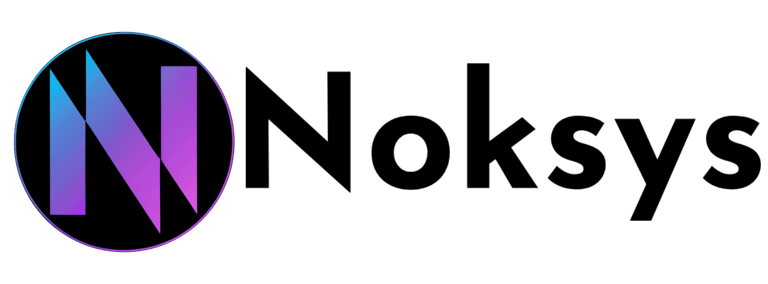The Rise of AI-Powered Assistants: How ChatGPT and Gemini Are Changing the Game
AI
4/3/20252 min read


The Rise of AI-Powered Assistants: How ChatGPT and Gemini Are Changing the Game
Introduction
The tech world is buzzing with the rapid advancements in AI-powered assistants. From OpenAI’s ChatGPT to Google’s Gemini, these intelligent chatbots are transforming how we work, learn, and interact with technology. But what makes them so revolutionary, and how are they shaping the future?
In this blog post, we’ll explore:
The evolution of AI assistants
Key differences between ChatGPT and Gemini
Real-world applications and benefits
Ethical concerns and challenges
What the future holds
The Evolution of AI Assistants
AI chatbots have come a long way from simple rule-based systems to sophisticated large language models (LLMs). Early chatbots like ELIZA (1966) and Siri (2011) had limited capabilities, but today’s AI assistants leverage deep learning and neural networks to understand and generate human-like text.
Key Milestones:
2017: Google introduces Transformer architecture, the backbone of modern AI models.
2020: OpenAI launches GPT-3, a breakthrough in natural language processing.
2023: ChatGPT becomes the fastest-growing app in history, reaching 100 million users in just two months.
2024: Google rebrands Bard to Gemini, integrating advanced multimodal capabilities.
ChatGPT vs. Gemini: What’s the Difference?
Both ChatGPT (by OpenAI) and Gemini (by Google) are leading AI models, but they have distinct strengths:
FeatureChatGPT (GPT-4)Gemini (Ultra 1.0)DeveloperOpenAIGoogle DeepMindMultimodalText & images (GPT-4V)Text, images, audio, videoIntegrationMicrosoft (Copilot)Google Workspace, AndroidSpeedFast responseOptimized for real-time tasksAccessibilityFree & Pro versionsFree with Google account
Which one is better?
For creativity & writing: ChatGPT excels in long-form content.
For research & real-time data: Gemini leverages Google’s vast knowledge base.
For multimodal tasks (audio/video): Gemini has an edge.
Real-World Applications
AI assistants are no longer just chatbots—they’re becoming essential tools in various industries:
1. Productivity & Work
Automating emails, reports, and presentations
Coding assistance (GitHub Copilot, Amazon CodeWhisperer)
2. Education & Learning
Personalized tutoring
Instant research summaries
3. Healthcare
AI-assisted diagnostics
Virtual health advisors
4. Customer Support
24/7 chatbots for businesses
Sentiment analysis for better service
Ethical Concerns & Challenges
While AI assistants bring immense benefits, they also raise important concerns:
🔹 Bias & Misinformation – AI can generate false or biased content.
🔹 Job Displacement – Will AI replace human roles in customer service and content creation?
🔹 Privacy Risks – How secure is the data shared with AI models?
Companies like OpenAI and Google are working on ethical AI guidelines, but regulation and transparency remain critical.
The Future of AI Assistants
The next wave of AI will likely include:
✅ Fully autonomous AI agents that perform complex tasks.
✅ Emotion-aware AI that understands tone and context better.
✅ Seamless integration into AR/VR (Apple Vision Pro, Meta Quest).
As AI continues to evolve, one thing is clear: AI-powered assistants are here to stay, and they’re only getting smarter.
Final Thoughts
AI assistants like ChatGPT and Gemini are revolutionizing how we interact with technology. Whether for work, education, or entertainment, these tools are becoming indispensable. However, as we embrace AI, we must also address ethical challenges to ensure responsible development.
What’s your take? Are you using ChatGPT or Gemini? Which one do you prefer? Let’s discuss in the comments!
#AI #ChatGPT #Gemini #ArtificialIntelligence #TechTrends #FutureOfAI
